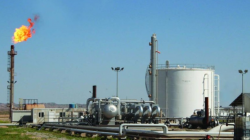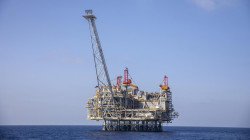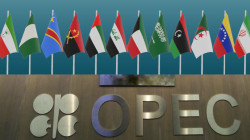US-Iraq Trade in turmoil: Trump’s 39% tariff threatens ties
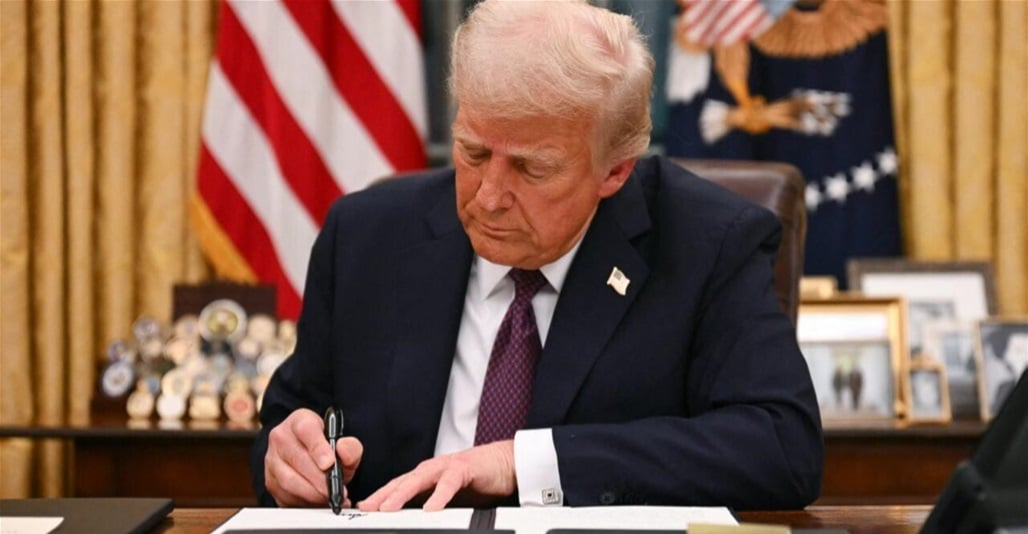
Shafaq News/ The economic relationship between Iraq and the United States—historically anchored in oil and reconstruction—is under pressure after a surprise policy shift from Washington.
On April 2, President Donald Trump announced a 39% tariff on Iraqi exports as part of a broader nationalist trade push. Though oil is exempt, the move casts a long shadow over a strategic partnership that has weathered war, instability, and shifting global markets.
A Longstanding but Uneven Trade
Economic ties between the two countries date back to the early 20th century, deepening significantly after the 2003 US-led invasion of Iraq. Reconstruction efforts and foreign investment, particularly in energy, fueled trade growth. By 2024, bilateral trade reached over $17 billion, driven mainly by Iraqi oil exports and American industrial and pharmaceutical imports.
Oil remains the centerpiece of Iraq’s trade with the US. In January 2025 alone, Iraq exported more than 7 million barrels of crude and derivatives, according to the US Energy Information Administration (EIA). These shipments generate an estimated $10 billion in annual revenue for Baghdad, creating a trade surplus of roughly $5.7 billion.
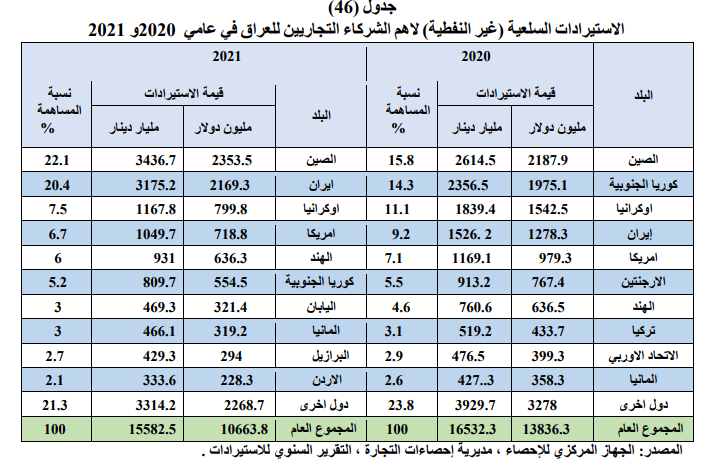
“Iraq currently enjoys a trade surplus of nearly $6 billion with the US, primarily due to oil exports to refineries in Texas and California,” economist Ziyad Al-Hashemi stated. “This is a key bargaining point in Iraq’s favor during any future trade negotiations.”
By contrast, non-oil exports remain marginal. Data from the Iraqi Ministry of Planning and UN trade statistics show a limited footprint: $13 million in printed publications, just over $600,000 in alcoholic beverages, and a few hundred thousand dollars’ worth of food products, gypsum, and butane. Monthly non-oil exports to the US still average below $1 million, underscoring the depth of Iraq’s reliance on a single commodity.
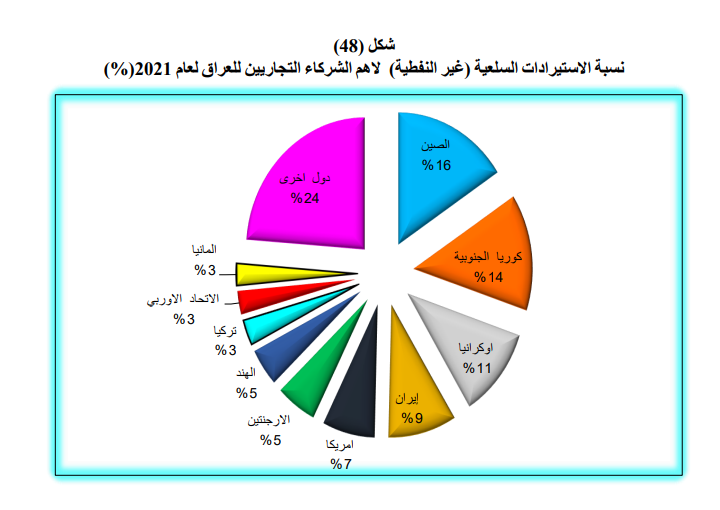
On the import side, the US sent Iraq approximately $9.5 billion in goods in 2024, spanning machinery, vehicles, medical supplies, telecom equipment, and food products. American firms play a key role in Iraq’s recovery, ranking the US fifth among Iraq’s top suppliers after China, South Korea, Ukraine, and Iran.
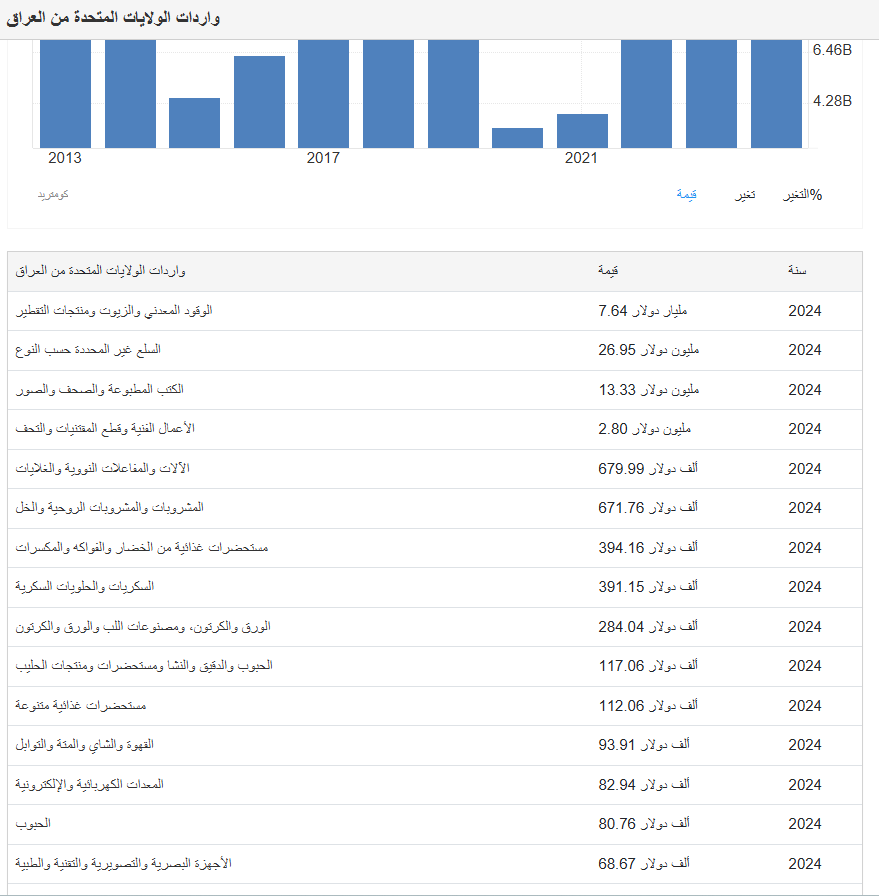
From Trade Policy to Political Leverage
At first glance, the tariff appears to be part of Trump’s broader push to cut trade deficits. However, given Iraq’s narrow export base and heavy reliance on oil, the move carries deeper strategic implications. With crude shipments untouched, Washington’s decision seems less about economic protectionism and more about exerting political pressure on Baghdad.
“Iraq can redirect its oil elsewhere. The bigger hit might come to American exporters and consumers,” Al-Hashemi noted, emphasizing that the tariff could backfire on US businesses.
Market reaction was swift. Brent crude prices fell by nearly $2 per barrel following the announcement. Though oil is exempt, analysts warn of indirect effects. Economist Abdul Rahman Al-Mashhadani cautioned that trade restrictions could slow global growth, reduce demand, and depress oil prices, posing a risk to Iraq’s revenue stream. “With oil accounting for 95% of Iraq’s budget, the impact could be severe,” he told Shafaq News.
Al-Mashhadani also pointed out that Iraq’s oil exports to the US—between 250,000 and 450,000 barrels per day—are vital to American refineries. Any future tariffs on oil could raise costs for US fuel production, potentially weakening demand.
While the direct financial losses for Iraq are minimal, the political implications of Washington's move are more profound, raising concerns about economic sovereignty and alternative partnerships.
Limited Damage, But a Bigger Message
Iraq’s non-oil exports are too small to suffer major financial losses from the tariffs. In 2021, they totaled just over $700,000, and though they saw a modest uptick in 2024, the economic impact remains symbolic rather than substantial. Yet, the message is clear: Iraq must rethink its reliance on oil and explore alternative trade partnerships.
For US exporters, however, the effects could be more tangible. Sectors such as agriculture, pharmaceuticals, construction equipment, and technology may face retaliatory shifts in Iraqi procurement. With Iraq already deepening economic ties with China and Russia, American businesses risk losing market share.
Strategic Fallout: A Shift in Alliances?
Beyond trade, the tariff decision risks straining an already delicate regional alliance. Iraq plays a critical role in US-led counterterrorism efforts and regional energy cooperation. The imposition of steep tariffs—even if largely symbolic—raises questions about Washington’s commitment to Iraq’s economic stability.
Meanwhile, China’s Belt and Road Initiative has given Baghdad an alternative source of infrastructure funding, and Russia’s energy sector is expanding in Iraq. If Washington’s goal is to push Iraq toward economic diversification, it may instead be accelerating Baghdad’s pivot toward Eastern powers, reshaping alliances in the Middle East.
